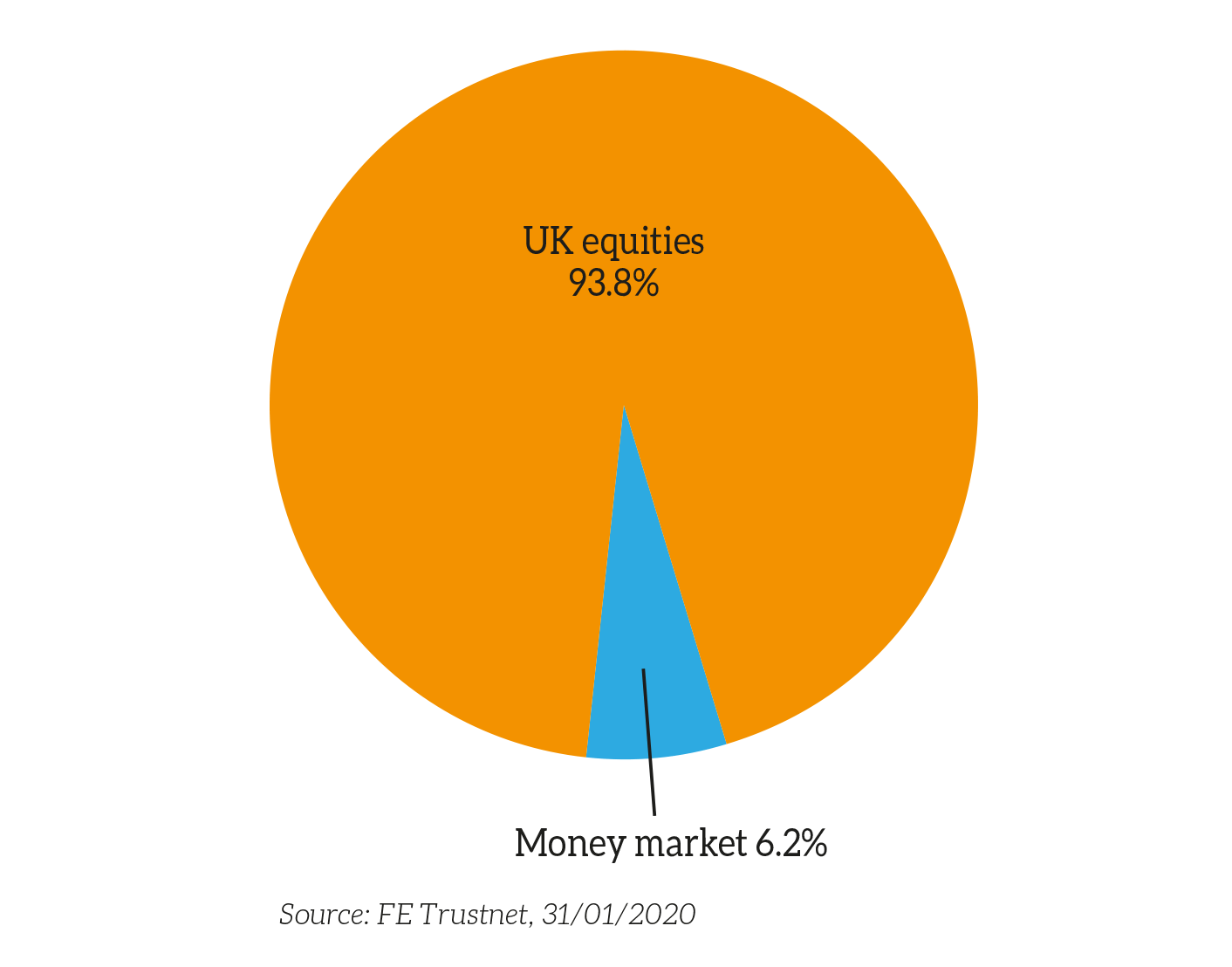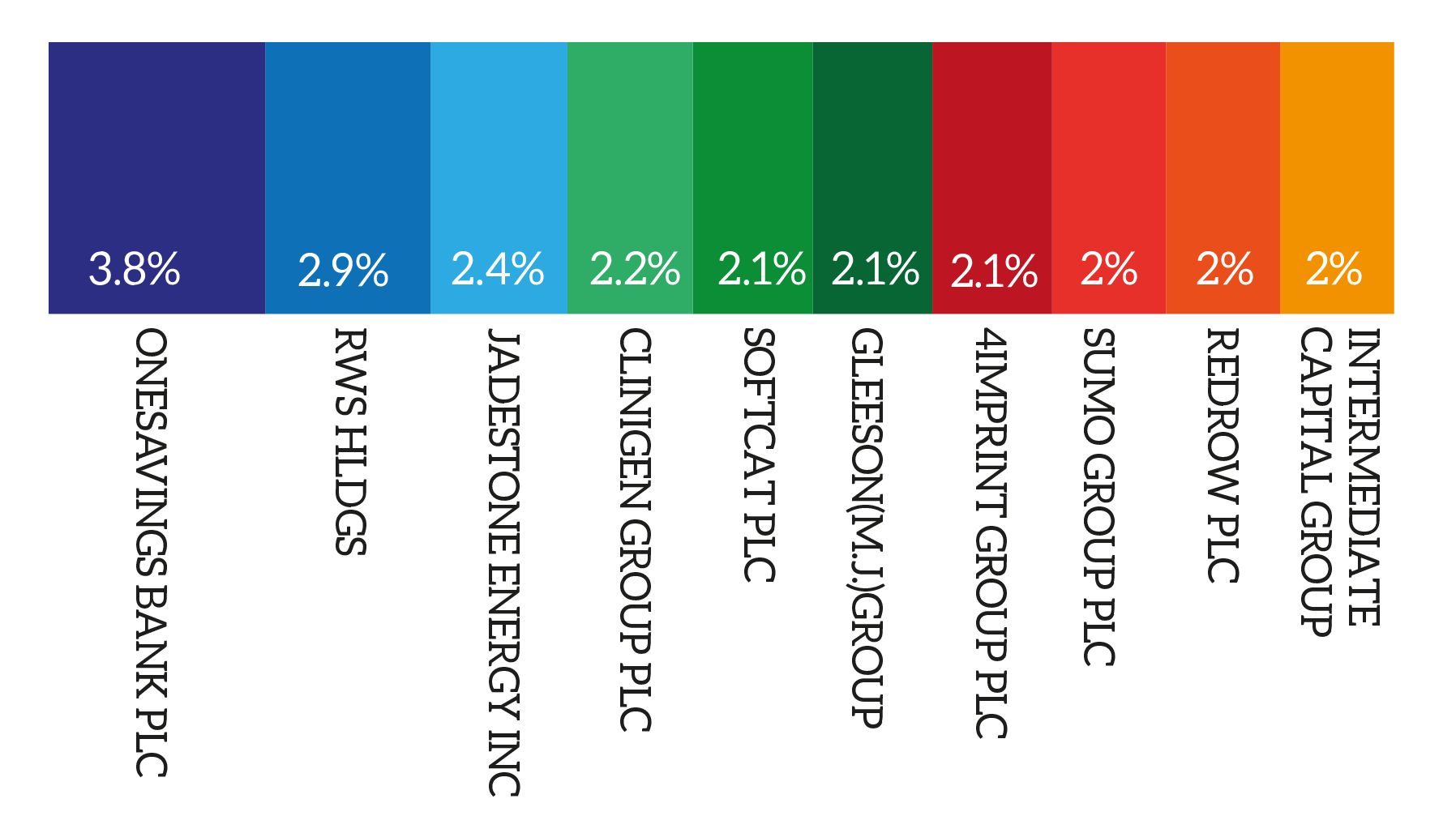Moneywise First 50 interview: Dr Paul Jourdan, TB Amati UK Smaller Companies
Dr Paul Jourdan, co-founder of the TB Amati Global Investors and co-manager of Amati UK Smaller Companie…
28th March 2020 13:49
by Brean Horne from interactive investor
Dr Paul Jourdan, co-founder of the TB Amati Global Investors and co-manager of Amati UK Smaller Companies fund, speaks to Brean Horne about the fund’s objectives and his top tips for beginner investors

What is TB Amati UK Smaller Companies?
The TB Amati UK Smaller Companies fund was launched in 2000. Its objective is to provide medium- to long-term capital growth through investment in a diversified portfolio of UK smaller companies. Our fund typically invests in shares, equity-related securities or bonds in or issued by UK smaller companies.
Why should people invest in the fund?
Our fund’s portfolio has significant exposure to companies capitalised [valued] at £1 billion and below.
We believe that smaller companies are very interesting as they have the capacity to grow much faster than larger companies.
Over the past 10 to 15 years we haven’t seen any standout performers at the top end of the UK stock market.
In today’s climate of rapid industrial change, smaller companies offer a wealth of opportunity for active investment management.
Many of these companies are at the forefront of innovation, developing new ideas and fresh technology that are constantly advancing the market.
We are currently in a period of rapid industry change. As such, we are likely to see UK smaller companies perform well.
What gets you out of bed in the morning?
I find investing endlessly fascinating and I feel very lucky to have built my career in it.
There is always something new to learn and I thoroughly enjoy overcoming any challenges along the way.
Aside from work, my 10-month old Labrador puppy, Petra, brightens my day. She is such a delight and she sometimes accompanies me into the office.
What’s the first investment you ever made?
I’ve always been interested in investing and have experimented with different investments over the years.
When I was younger, I used to advise my mum what do with her investments. As I got older, I dabbled in endowment policies, which were very popular at the time.
My first real investment decision was choosing not to buy a standard endowment policy and instead ensuring that I was investing in companies that I was interested in.
It gave me the opportunity to study the way markets and companies behaved.
Later on, I crossed paths with a wonderful market strategist called David Fuller.
He kindly invited me to a seminar, which was a brilliant introduction to how markets work.
After attending the seminar, I started to make bolder investment decisions such as trading currency options. I looked at markets from a macro point of view; observing how they behaved and trying to decipher how they might react in the future.
The experience was enlightening and ultimately taught me that markets are very unpredictable.
During my PhD in music, I was able to part fund my studies by trading Japanese Yen options.
What have been your best investment decisions?
I think the best investment decisions are always about buying great businesses.
For example, we invested in GB Group quite early, before it became well known, and it is now a billion-pound company.
When we buy a company, we hope to hold on to it for 10 years or longer. Other companies may come along in the short term that look good but resisting the temptation to jump from one company to another is important for long-term growth.
And your worst?
We have had a couple of companies go bust over our time and you end up losing everything you put in.
Companies going under usually occur for two reasons, one of which is fraud and the other is investment mistakes, both causes can be devastating for investors.
What top tip would you give to a beginner investor?
As an investor it’s vital to think for yourself. Stay curious and always
ask questions to help you get a deeper understanding about how things work.
While it is good to discuss investing and your options with others, avoid simply mimicking someone else’s investment choices or simply investing in something because they suggest it.
Make sure you do your own research before handing over your money and examine any investment thoroughly.
Never assume that you know everything about an investment or company, so keep an eye on how they behave.
Finally, it is important to take responsibility for your investment decisions. Be prepared to make mistakes. It is the only way to really learn how investing works and what could help you achieve your financial goals in different market environments.
TB Amati UK Smaller Companies stats
Launch: 18/12/1998
Fund size:
£428.57 million
Charge: 0.92% (OLF)
Yield: 1.30%
31/01/2020
Source: FE Trustnet
The manager behind the fund
Dr Paul Jourdan co-founded Amati Global Investors following the management buyout of Noble Fund Managers from Noble Group in January 2010, having joined Noble in 2007 as head of equities. Prior to 1998, Paul worked as a professional violinist, including a four-year period with the City of Birmingham Symphony Orchestra.
Sector Breakdown

Top 10 holdings

Discrete performance of the fund over five years (%)
Period | 0-12 m | 12-24 m | 24-36 m | 36-48 m | 48-60 m |
TB Amati UK Smaller Companies B Acc | 3.5 | -0.5 | 25.6 | 30.9 | 15.9 |
IA UK Smaller Companies | 1.7 | -5.5 | 18.1 | 21.1 | 6.0 |
Source: FE Trustnet, 31/01/2020
This article was originally published in our sister magazine Moneywise, which ceased publication in August 2020.
These articles are provided for information purposes only. Occasionally, an opinion about whether to buy or sell a specific investment may be provided by third parties. The content is not intended to be a personal recommendation to buy or sell any financial instrument or product, or to adopt any investment strategy as it is not provided based on an assessment of your investing knowledge and experience, your financial situation or your investment objectives. The value of your investments, and the income derived from them, may go down as well as up. You may not get back all the money that you invest. The investments referred to in this article may not be suitable for all investors, and if in doubt, an investor should seek advice from a qualified investment adviser.
Full performance can be found on the company or index summary page on the interactive investor website. Simply click on the company's or index name highlighted in the article.